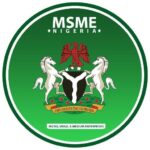Nigeria recently exited recession according to a February 2021 statistics from the National Bureau of Statistics (NBS), indicating a 0.11 per cent economic growth rate in December 2020.
Records have shown that the positive growth for the first time after two-quarters of negative growth may be attributed to the various finance floating strategies of the federal government in the Nigeria Economic Sustainability Plan 2020 (NESP) popularly called ESP, with at least N2.3 trillion in funding capital.
- Victimisation: We may go on strike again, ASUU warns
Despite N134bn allocation, senators, reps seek more funds
The country hit by COVID-19 recorded a -3.62 per cent negative growth of real Gross Domestic product (GDP) in the third quarter, after an earlier negative growth of -6.10 per cent in the second quarter, and was pronounced to be in recession in November 2020.
Economic experts and the federal government had attributed the recession to the challenges caused by the COVID-19 pandemic which affected leading global economies including the United Kingdom.
However, to the surprise of even the international community, Nigeria exited recession albeit a slight positive growth of 0.11 per cent.
The ESP was approved by President Muhammadu Buhari and the Federal Executive Council (FEC) on June 24, 2020, as a N2.3 trillion stimulus plan.
The Plan came with various dimensions of interventions but with all involving huge funds to be sacrificed and some to be given but with lower returns, all towards ensuring that economic activities keep happening despite the pains of the COVID-19 lockdown, the post-lockdown measures, among others.
MSMEs Survival Fund, Grant Scheme
The first of such was the Micro, Small and Medium-scale Enterprises (MSMEs) Survival Fund and the Guaranteed Off-Take Schemes [Payroll Support Payments (PSP), Artisan and Transport Grants].
According to records obtained from the Presidency on the implementation status of these components, over 310,000 employees from verified 64,000 businesses nationwide have been paid N30,000 and N50,000 grants each for three months, as of December 2020.
On the artisan support, the tracking document shows that over 165,000 persons have gotten the N30,000 one-time grant. At least the support targets 333,000 artisans across the country, which is still in progress.
The Formalization Support targets 250,000 firms to get Free Business Name Registrations by the Corporate Affairs Commission (CAC). The process began in October 2020 with over 150,000 business names registered so far.
Another aspect of the interventions is the Guaranteed Off-take Stimulus (GOS) scheme and the MSME Grant. The portal opened on February 9, 2021 and closed by March 1.
This financing model which targets 100,000 MSMEs is to protect and sustain the incomes of vulnerable MSMEs by guaranteeing the off-take of their products.
Then the General MSME Grant, a one-off grant of N50,000 is for each qualified MSME as direct cash injection into their enterprise. This one also targets 100,000 MSMEs spread across the states.
The ESP also has the 5 million households Solar Home System (SHS). The project worth N140 billion would serve about 25m individuals in rural areas and urban communities. It was flagged off early December 2020 through the Rural Electrification Agency (REA).
There is also the option for outright ownership of the solar power devices ranging from N1,500 per week to N4,000 monthly for three years.
The installation is ongoing and would reach over half of the target by June, said REA.

Social Housing for 1.5m Nigerians
This programme under the ESP is for 12 states in the first instance to help 1.5 million Nigerians to acquire low-cost houses. The application portal for beneficiaries was launched in December 2020 alongside the prototype 1-bedroom and 2-bedroom units. The ongoing scheme is to also create 1.8m jobs with CBN committing N200bn facility to it.
According to Vice President Yemi Osinbajo who inspected the prototype home in Dei Dei, Abuja in December 2020, the project is being implemented by the Family Homes Fund Ltd which enlisted 93 cooperative societies across the six geographical zones.
He had also said cement manufacturers agreed to discount for the supplies towards building the houses.
Agriculture for Food and Jobs Plan (AFJP)
The AFJP is a 12-month farm-to-table programme. 5.4 million farmers have been enumerated and 73,000 N-Power volunteers trained with 30,000 of them deployed to the 774 LGAs.
There is also the Rapid Response Register (RRR) is an intervention for the poor, with 1m households reached.
Beneficiaries recount experience
According to some of the beneficiaries, they have felt the impact of the interventions. Daily Trust spoke to Mrs Beatrice Onum, a school owner in the Jikwoyi part of Abuja who confirmed receipt of the fund for her teaching staff. “At first, I thought it was a scam when a friend sent me the link on WhatsApp to apply on the survival fund application website in September 2020.
“I applied and submitted my payroll and school registration documents, they were verified and I got paid some money as a grant,” said Mrs Onum.
Gabriel Jacob, the CEO of Gamandy Ventures, an agric-based outfit in Uyo, Akwa Ibom State said his employees were paid N30,000 each.
“I would love to ask that fellow youths have more trust and confidence in him and his administration. Thank you, Mr President and Mr Vice President.”
Mr Ikenna Ibekwe of Valued Resources, a quarry and mining company in Umuoghara Ezza North LGA in Ebonyi state also confirmed his firm benefited from the intervention. “This government has demonstrated commitment and fulfilment of promises made to citizenry.”
A school owner Suleja, Niger State, Mrs Onyinyechi Nwokoro said: “I am so grateful to them. It is not a scam, it is so real.”
According to Mary Azubuike who works for Gold-chumet Integrated Services (laundry firm) in Nnewi, Anambra state, “I am so impressed because my boss was about laying me off. The COVID-19 lockdown affected his business but today through survival fund intervention we are staying.”
Fund injections key to exiting recession – Experts
The Minister of Finance, Budget and National Planning, Mrs Zainab Ahmed, last Thursday said the federal government spent its way out of recession with more spending for infrastructure this year.
“A recent evidence of the benefit of spending is the fourth quarter GDP growth rate of the economy which was 0.11% resulting in Nigeria pulling out of recession after two quarters of negative growth,” she said.
Some economic experts, who spoke with Daily Trust, have corroborated the minister’s stance.
Chairman of Daily Trust’s Board of Economists, Professor Nafizi Abdullahi Darma, said: “Perhaps the cogent explanation to be provided for the quick exit of Nigerian economy from recession is the resilience of our people to weather any storm, but most importantly, the functionality of various interventions to spur economic activities generally.”
Nigeria’s first professor of Capital Markets, Uche Uwaleke, also said in addition to the interventions, the government heeded the advice of many including the CBN, not to impose another lockdown after the initial ones.
“Now that the economy has turned the corner, earlier than predicted, it is time to focus on achieving strong growth that is inclusive.”

 Join Daily Trust WhatsApp Community For Quick Access To News and Happenings Around You.
Join Daily Trust WhatsApp Community For Quick Access To News and Happenings Around You.


